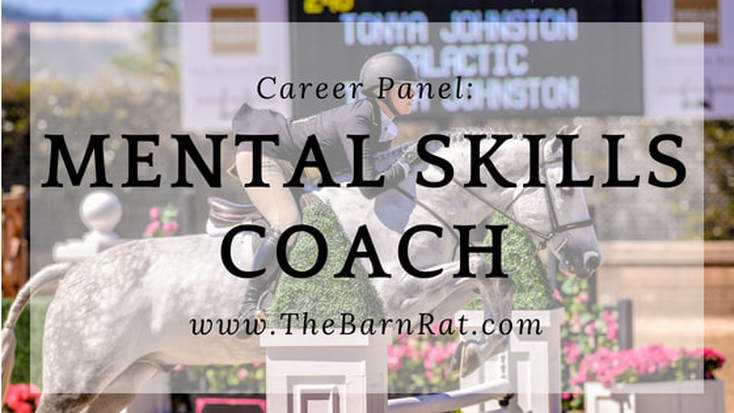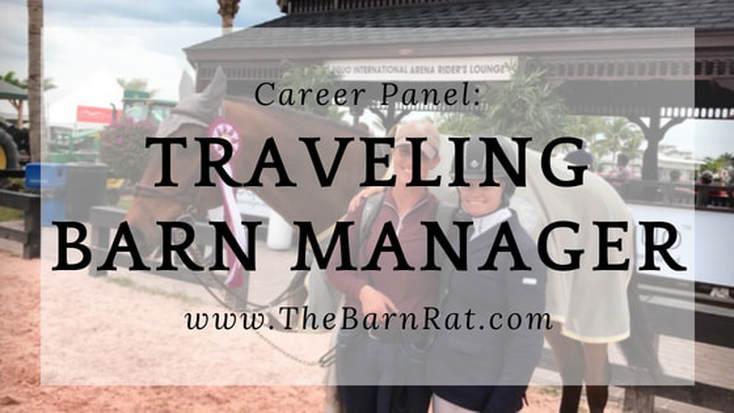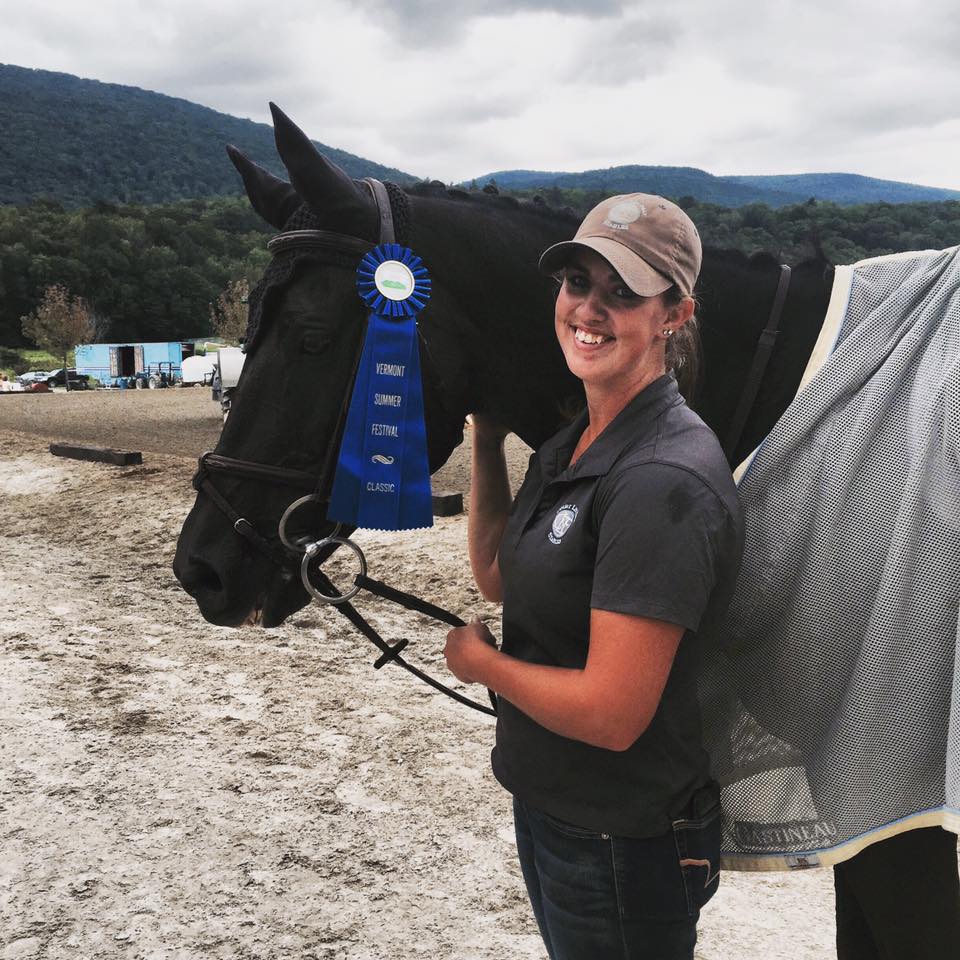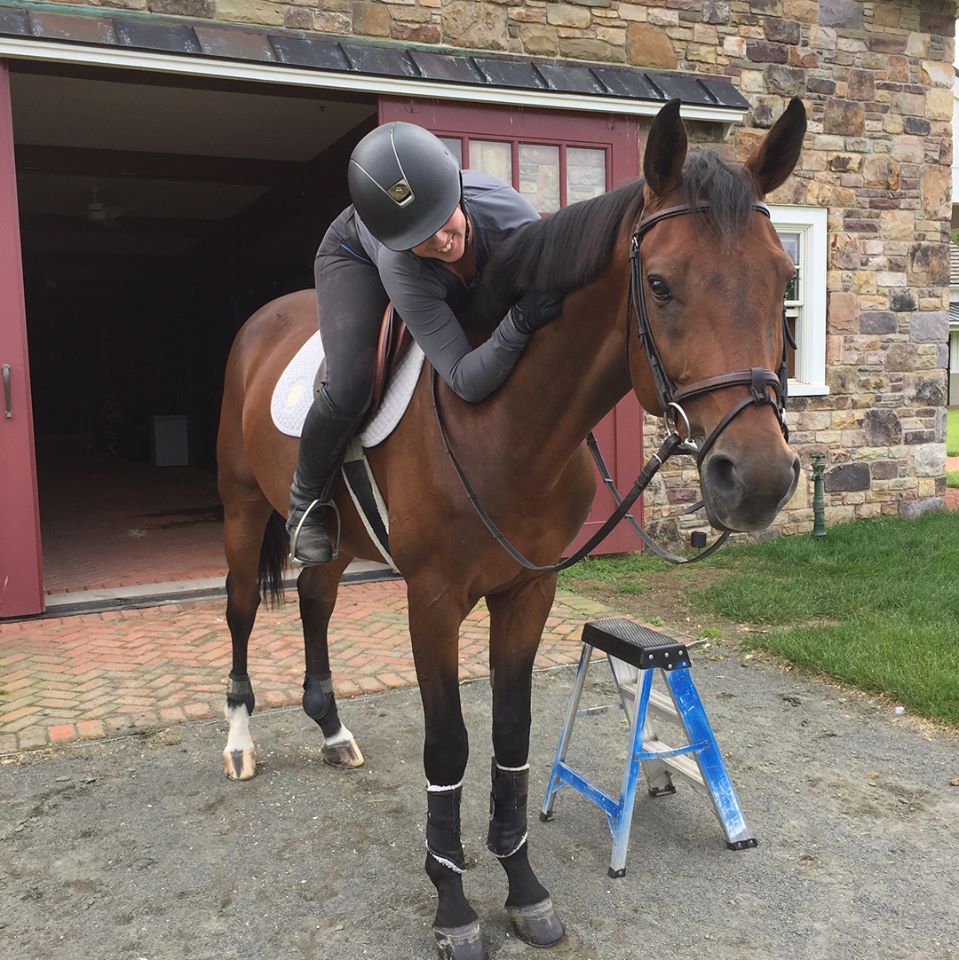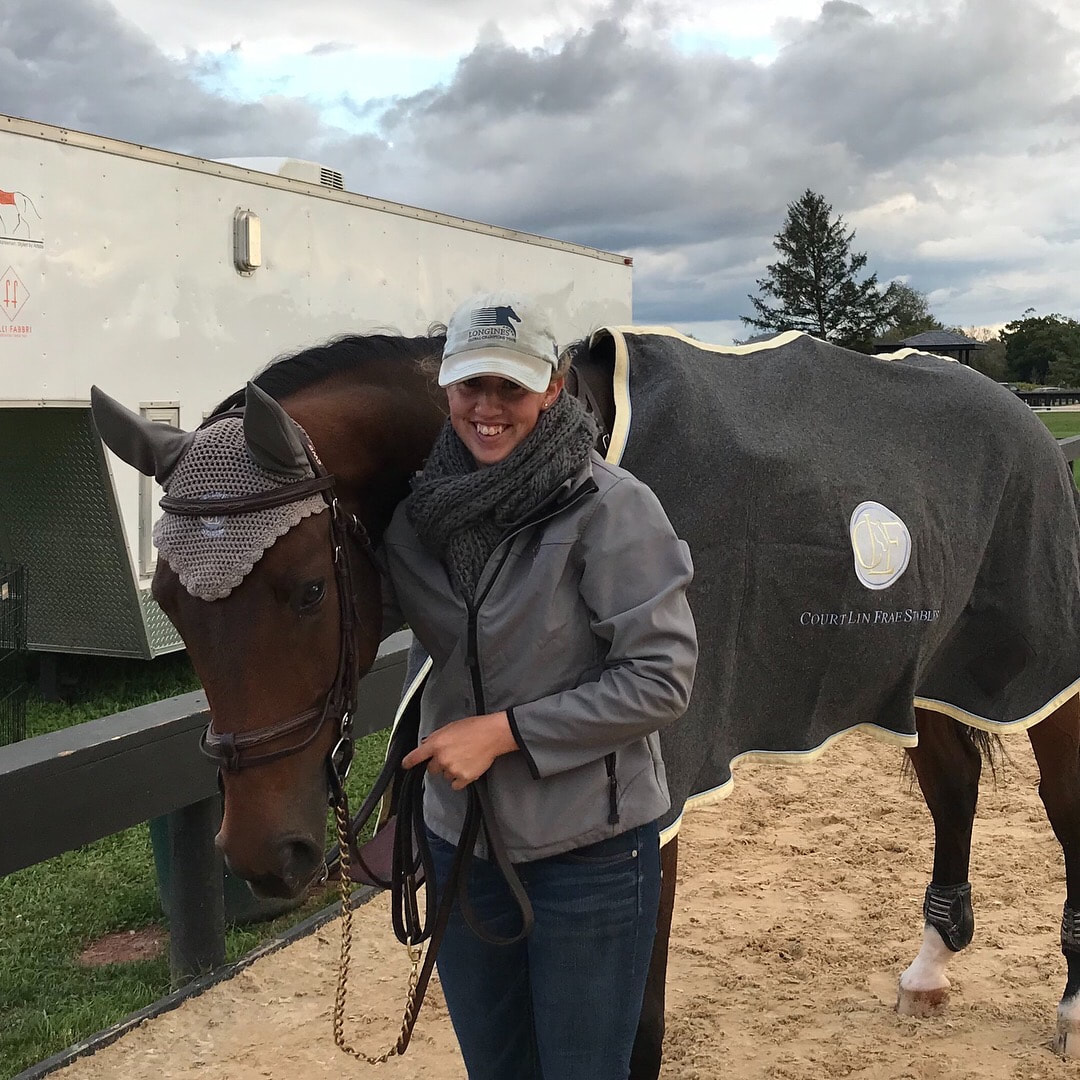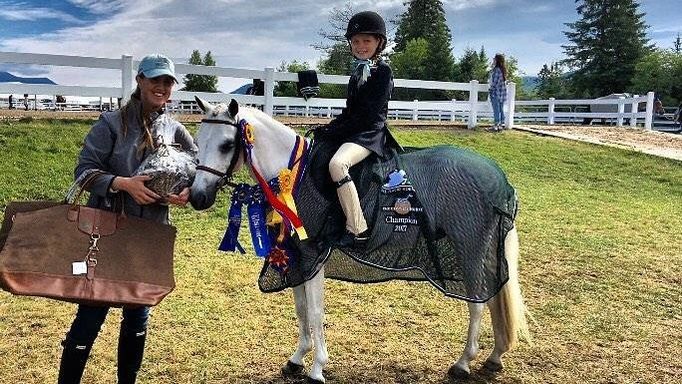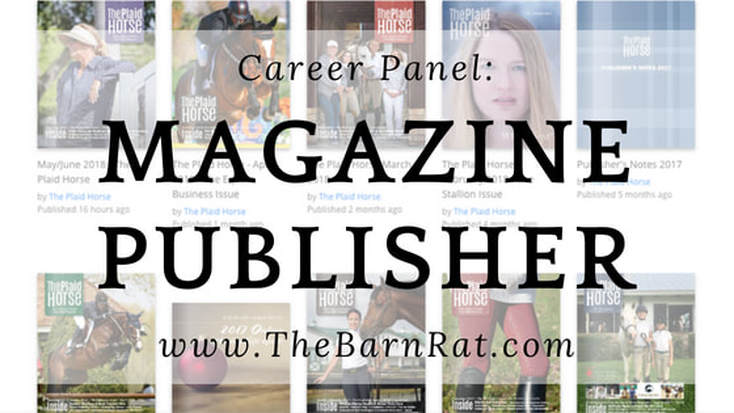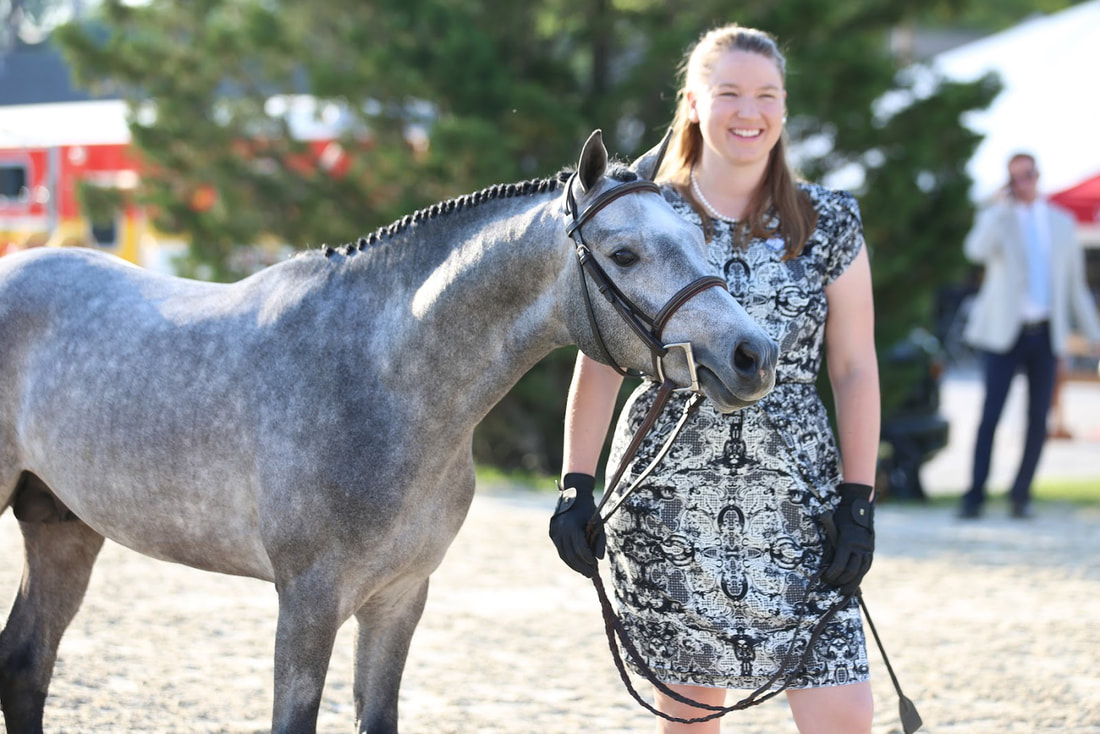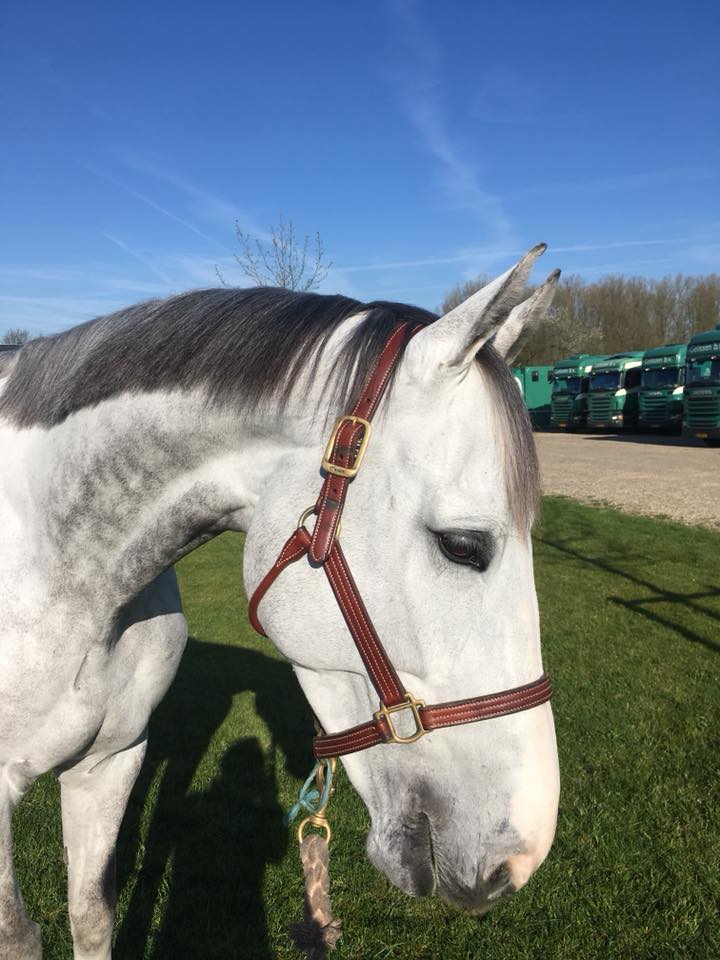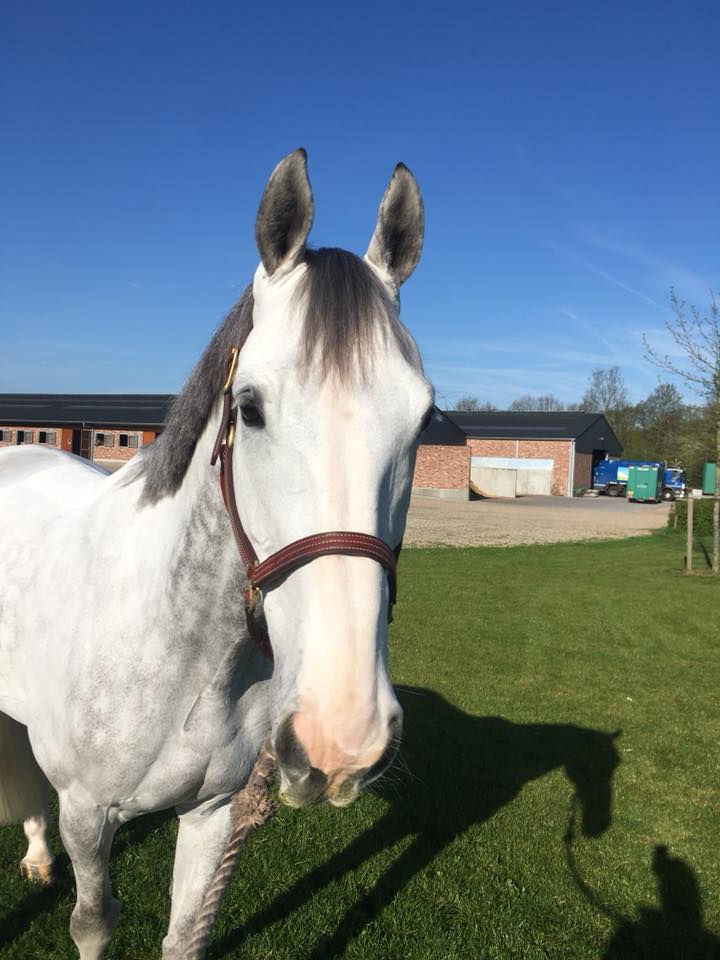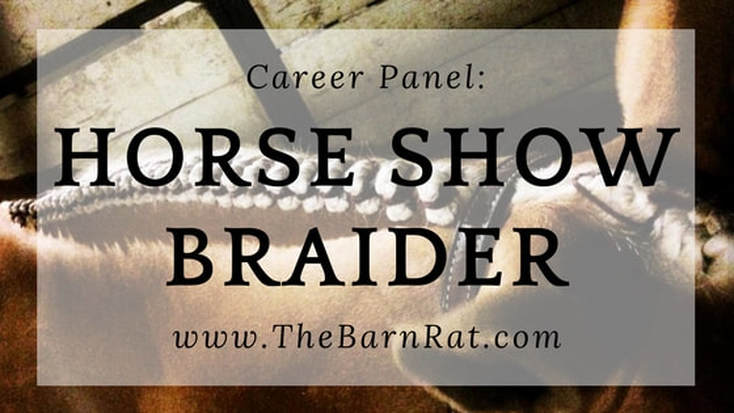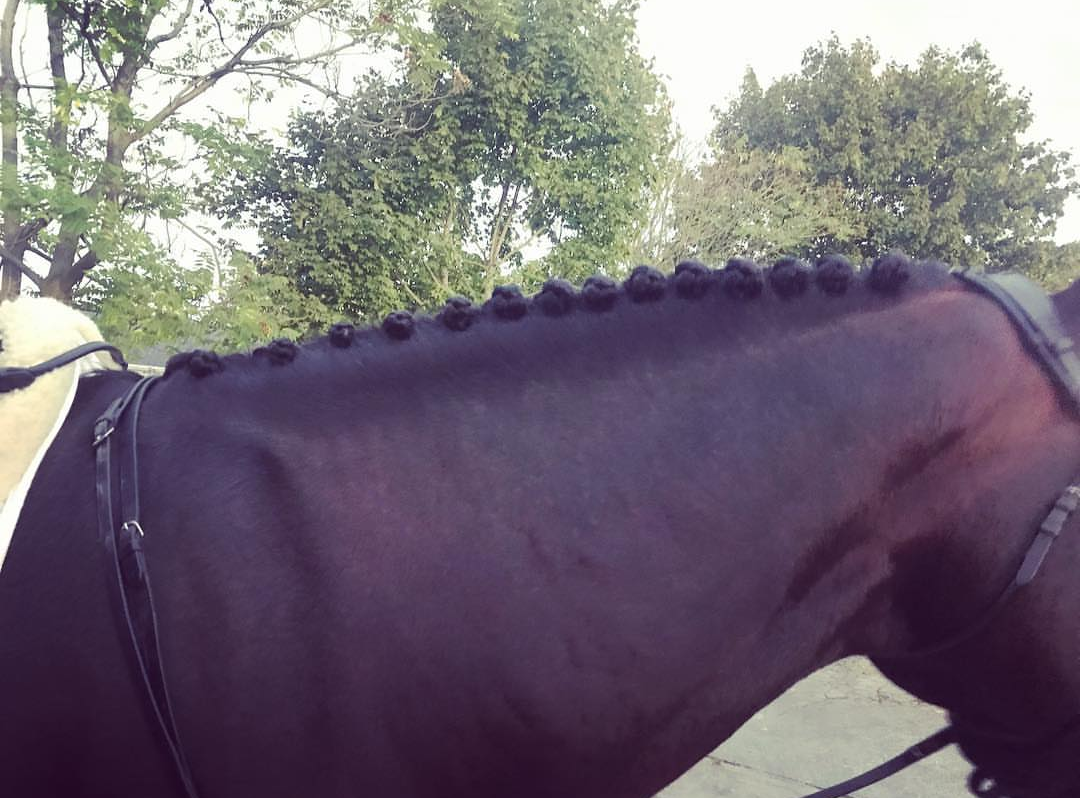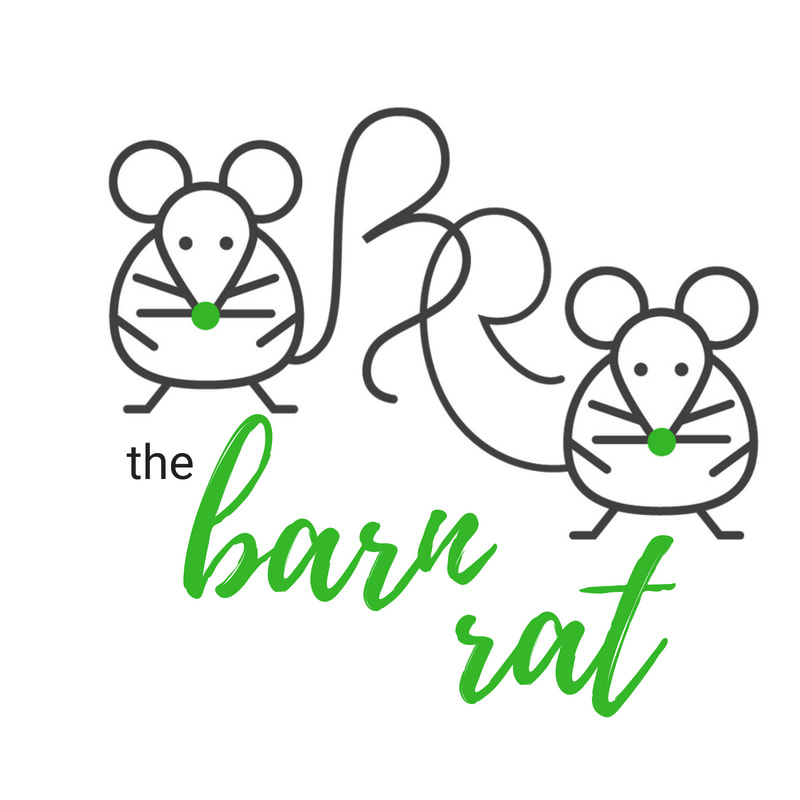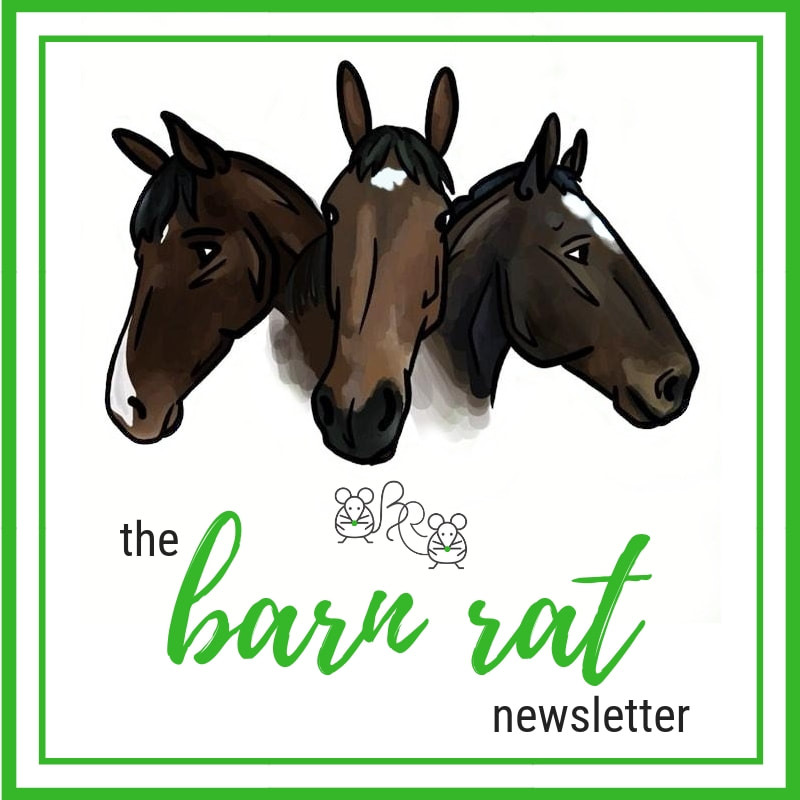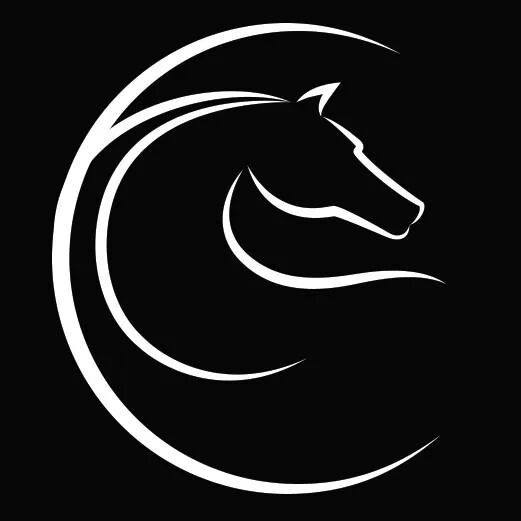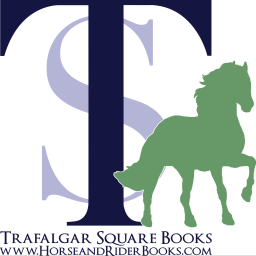|
I'm so excited about this interview! Today we are sitting down with Tonya Johnston a mental skills coach who helps riders overcome fears and hangups in the saddle. Her book, Inside Your Ride, is filled with practical tips to help you feel more confident. Read below about what her unique job is like! 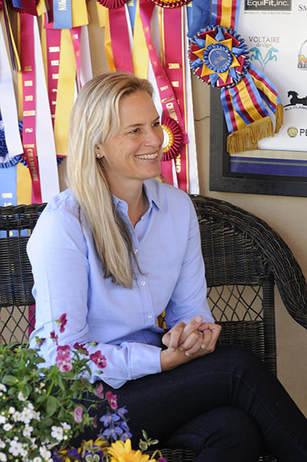 TBR: What is your job title? TJ: I have a master's degree in applied sport psychology, and I am a Mental Skills Coach. TBR: Describe your position and your average workday. TJ: I help riders develop their mental skills in order to be prepared, consistent and confident when they go in the ring. I have sessions with clients all over the country, Canada and Europe via FaceTime, Skype and phone. In a typical work day I may have sessions with clients, return emails, reply to Facebook and Instagram messages, work on writing projects, plan and organize my podcast tapings, book workshops with private barns and teams, write and review client notes, read magazines/articles/publications/books to stay current in equestrian sport and sport psychology, prepare for workshops or speaking engagements, talk to prospective clients on the phone and more. There is always a lot to do and each day is different depending on what is coming up in my calendar -- I love it! TBR: What is the best part of your job? TJ: I really adore everything about my job. I know it’s a cliché but it truly never feels like work. When I see and hear clients have an "ah-ha" moment or tell me a story from a recent show where they experienced the benefits of their mental skills I get so excited! It's fun to be on so many different teams and feel that my work spreads out into the world through such a great variety of people. Some of my favorite stories from clients revolve around them deepening their commitment to their process, and trusting that their competition results will then take care of themselves. Also, when a client tells me they are enjoying their horses more, feeling confident and having fun it is absolutely the best! TBR: What is the hardest/least desirable part of your job? TJ: I am able work with clients all over world from my office which is phenomenal, but I need to get a treadmill desk - I honestly sit too much! TBR: How many hours a week do you spend working? What is the work/life balance like? TJ: There are weeks I work every day of the week for sure -- a blend of writing, client appointments, notes, emails, talking to parents, etc. but I think that is true for anyone that owns their own business. The great part is that I set my own schedule and so I can carve out family time and time to ride and show myself. 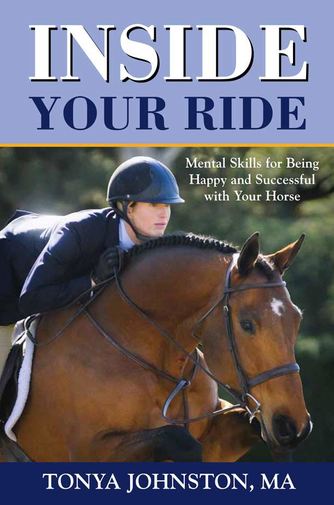 TBR: What advice would you give to someone wanting to do this job? TJ: I come from a true sport psychology background, with my undergraduate degree in psychology and a master's degree in sport psychology. I really recommend getting an advanced degree that not only gets you a solid education in the field but also provides lots of supervised, applied experiences working with athletes. You want to understand the theory and research behind the performance skills you teach in order to be truly effective. TBR: What is the range of pay for this position? TJ: The pay range is wide because this isn't the type of job you can apply for - you have to build it from the ground up. You can expect to need a variety of income streams when you are just starting out. TBR: What are 3 things you would want someone applying for this job to know? TJ: Well, first of all - you can’t really apply for this job; you have to have the passion, strength and tenacity to build your business yourself. However, sport psychology has come a very long way since I started my practice in 1993. People understand that working on your mental game is essential and athletes are much more open about using mental skills coaches than they were back then. Therefore, you will find that riders are quite receptive and interested in your work which will be encouraging as you get started. Have faith in yourself, it takes time to build your business but you can do it. This can be hard to grasp at first but it is a positive when your clients don’t need you anymore! Your ultimate goal is to empower them to understand themselves and how they can best support their own riding goals. There is no room for ego in this profession. Never forget that it is all about your clients; it’s not about you. It can make promoting your business and marketing a bit challenging, but if you keep doing quality work people will find you.
0 Comments
Do you dream of traveling to all the top horse shows and help manage the barn and horses? Well that's exactly what today's career panel interviewee gets to do! We caught up with Courtney Billings, who works for Court Lin Frae Stables, and got to hear all about her interesting job. 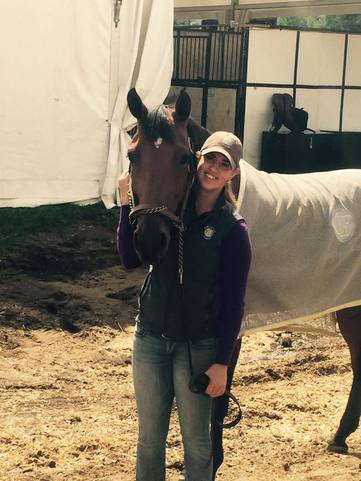 TBR: What is your job title? CB: Barn Manager TBR: Describe your position and your average work day. CB: My position is to oversee the day to day care of the horses in the barn. My average work day does depend on whether I am at a horse show or not. When I am not at a show, my day starts at 7AM with feeding, stalls, and turnout. The trainer and clients usually start to show up around 9AM to start their rides. I will get their horses ready for them and take care of them afterwards, whether that means bathing them or grooming them, whatever they may need. If any of the horses are going to jump that day I will go out to the ring to set jumps. Once all the clients are done riding for the day I will ride any horses that I have for the day. Come afternoon and all the rides are done the stalls will get picked out, top off water, feed, and make sure the horses are all set for the night. Night check is done around 8PM every night, just to check on the horses after they have eaten their grain, give them another flake of hay and top off water. The difference when at a show is usually just the start time (6:30AM). Also, all the riding will vary depending on the show schedule, and when each horse is showing. TBR: What is the best part of your job? CB: The best part of my job is watching the horses succeed. I work with these horses’ day in and day out making sure all their needs are met. I’m the one scheduling with vets, farriers, chiropractors, dentists etc. to make sure the horses are looking and feeling their best before walking into the show ring. When it all comes together and the horses walk into the ring and put in a great round or even win, I experience the same excitement as the rider. The horses are on my mind 24/7 and I will do whatever I need to do to keep them happy and enjoying their job, and seeing them enjoy their job makes it all of the hard work worth it. TBR: What is the hardest/least desirable part of your job? CB: The least desirable part of my job is trying to find working students/grooms. Trying to find hard working, reliable, passionate help is very hard to come across in this industry. As for the hardest part of my job I would say it must be the traveling. My schedule is 6 months in Wellington, FL and 6 months traveling up the east coast. Although going to all the different horse shows and seeing all the cool places I get to go to is amazing, being on the road and living out of a suitcase does get tiring. TBR: How many hours a week do you spend working? What is the work/life balance like? CB: When I am not at a horse show a normal work week is probably about 60 hours/week. When I am in Florida during the winter it is easy for me to maintain a good work/life balance because I get Mondays off. When I am on the road in the summer it is a little more difficult because of the traveling. TBR: What advice would you give to someone wanting to do this job? CB: For someone who is looking for this position I would say they need to be prepared to be on call 24/7 and make this job a big part of their life. Someone once told me that this isn’t just a job it’s a lifestyle, and I think that is the easiest way to describe this job and to mentally prepare for it. Although it is still possible to maintain a normal work/life balance the horses are still going to have to come first when you are the person responsible for them. But at the end of the day the rewards that you get from this job and the relationship you build with the horses make everything worth while. TBR: What experience or schooling did you need to qualify for this job? CB: Before getting this job, I did attend Centenary University and received my Bachelor’s of Science in Equine Studies. My education from Centenary was extremely beneficial in preparing me to work in the industry after graduation. While I was attending Centenary, I was able to have a working student position with one of my professors at her business. My working student position was very helpful in getting my feet wet in the industry and allowed me to get a feel for what it was going to be like after college. TBR: What is the range of pay for this position?
CB: The range of pay does depend on the size business which is always something to keep in mind. The salary range is $500-$650/week. Most of these jobs do provide housing which is a major financial cost that I get to save. TBR: What are 3 things you would want someone applying for this job to know? CB: 1) Observe everything, I spend a lot of time in the schooling rings at horse shows and I get to watch a lot of the top professionals so I try and absorb everything I see and hear. 2) Stay connected, leave a good impression with everyone you meet and work with you never know when you might need a reference or some help. After having this job for five years and working with so many different people with different jobs in the industry I have acquired many different skill sets that have only helped me improve in my job. 3) The horses will always come first. Whether it’s early mornings prepping horses for the ring, or staying at the barn late with a vet or doing multiple night checks for a sick horse it is my job to be the person that is there for the horses. Sometimes these things might ruin plans that I have made for that day but horses are unpredictable and I must be prepared for that at all times. TBR: What do you think the horse industry needs to do for the future? CB: I think one of the biggest things the industry needs is for the future generation to have more involvement in the care of the horses. A lot of the students graduating college or coming into the industry believe that it is all about the riding but the horses they are riding wouldn’t be ready for the ring without the people that care for them. The people behind the scenes are a vital part to the horses’ life, and the reason we all even fell in love with this sport was for the animal and I think at the end of the day we all need to remember that. We are so excited to have been able to interview Piper Klemm PhD for our career panel series! You can find her working for The Plaid Horse Magazine (read the mag here!) and on The PlaidCast the podcast. 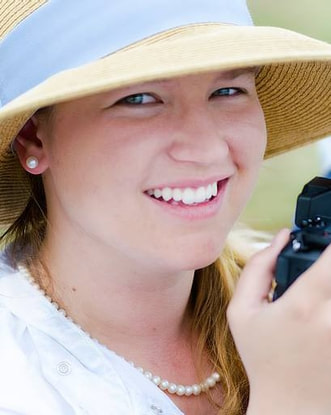 TBR: What is your job title? PK: I am the Publisher of The Plaid Horse Magazine, and the Owner of Piper Klemm PhD LLC, a corporation serving the equine industry through investments, equine sales and leases, and media. TBR: Describe your position and your average work day. PK: I wake up everyday between 6 and 7 am and get right to work - I answer a few emails before I get out of bed and am already planning, thinking, and on social media by the time I brush my teeth. Throughout the day, I handle any issue that comes up between employees, magazine, clients, ponies, etc - I'm always on my phone. Being the Publisher - I do a bit of everything as it needs to be done - I write, photograph, manage, invoice - I have everything going at once every day. I travel a lot for horse shows, I prepare for and record 6 podcasts a month, and I educate companies about the media landscape in the equine industry and how to maximally utilize it - I'm in a lot of meetings! TBR: What is the best part of your job? PK: I love working with young people - we have a super internship program and to watch them find their own voice in the industry, learn, and really start to excel and feel the confidence of knowledge is always a fun time for me. I like the horse shows when I can spend some low-key time with my ponies too - there's nothing like holding a lead rope for a hand graze as the sun rises. TBR: What is the hardest/least desirable part of your job? PK: There is a ton of paperwork and it is always a struggle to keep everything organized, in it's place, and people up to date and happy. I really love to travel, but sometimes I travel so much that those drives and flights can feel really, really long. I'm always happy to see my husband and have a few quiet days at home. TBR: How many hours a week do you spend working? What is the work/life balance like? PK: I really have no interest in a work/life balance. I love what I do, this is my passion, and I chose this career because I want to spend every minute of every day on it. I would say I take about half a day off every two months or so. I go to movies and dinner with my husband and don't bring my phone - I try to be very present when I am not working. We both have the same values, so that helps and isn't ever an issue. TBR: What advice would you give to someone wanting to do this job?
PK: Anything worth doing well and any business that is your own is a ton of work. There is risk, there is fear, there is a lot going on. If it's for you, go for it! If it's not, seek out a more stable situation. TBR: What experience or schooling did you need to qualify for this job? PK: I have a B.S. from Trinity College and a Ph.D. in Chemistry from the University of California, Berkeley. My education helped organized me on how I learn, think, and manage. I encourage everyone to get as much education as possible and dive in and get to know yourself in the process - knowing how you learn and how to push yourself is essential to success. TBR: What is the range of pay for this position? PK: As the owner of the company, I invest as much as I can in the next project and in growth. I live as simply as I can and keep an eye on every budget and think about longevity and long-term growth. TBR: What are 3 things you would want someone applying for this job to know? PK: My job you have to create - they're not really out there to apply for. I would say read and learn as much as you possibly can about a variety of topics, challenge yourself, put yourself out there, and pay attention. So much can be accomplished if you can do those four things. TBR: What do you think the horse industry needs to do for the future? PK: Like most industries, it is a very interesting time for the horse industry. We need growth, we need to be inclusive, and we need to train people to be good owners, trainers, horseman, and every other job in the industry. I hope every young person takes the time to learn and appreciate what the older generation has to offer. I hope every established person takes time to mentor and give opportunity to young people. We need to come together as a community to grow this sport and make it better. Life is a grassroots campaign - success starts with one person, one interaction and grows from there. Everyone can make the time every day to positively impact all of us. Imagine traveling half way around the country, driving through three countries and arriving at the World Cup Finals in Paris, France. To many this sounds like an amazing journey, and for Sarah Hickey this was her trip. The Barn Rat was able to catch up with Sarah who groomed for second place finisher Devin Ryan and his ride Eddie Blue. 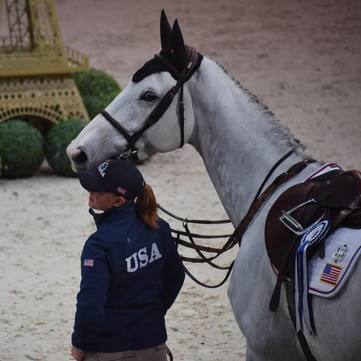 Sarah and Eddie Blue during the awards ceremony. Sarah and Eddie Blue during the awards ceremony. TBR: How did you start working for Devin? Sarah Hickey: "I've known Devin for the past 11 years. I started riding with Devin when I was 16 and brought up two young ones with him. I worked for him in and out of college so we've always had a great relationship. He called me up in January, he didn't have anyone to go to Ocala with him. So I spent February and March down there with him and when he qualified for Paris he invited me to come along. TBR: How was prepping to go to Paris? SH: We got home from Ocala the end of March and for the next week Devin rode Eddie. Then, Eddie and I left his farm April 4th and Eddie was in my hands from then on. I flew with him, we went to the arc in JFK and we waited there for a few hours. I flew with him to Amsterdam, when we landed we had to wait and go through customs. And then we took a lorry to a farm in Holland, we went to Allan Waldman's farm, Waldman Horses, for a couple days. From Wednesday to Monday morning we were there. Monday morning we took another lorry, it was a six and a half our trip to Paris to get to the horse show. Schooling was Tuesday and the warm up round was Wednesday. 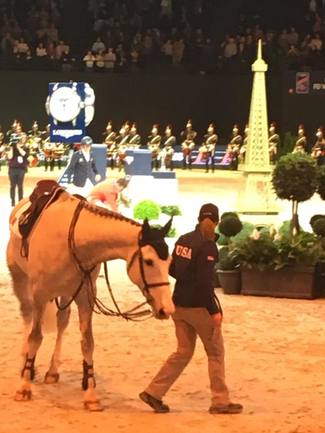 TBR: What was grooming for an FEI event like? Had you done that before? SH: So I was totally excited for Paris, this was my first big FEI competition that I had done. I had some experience going to Live Oak in Ocala and that was really it. So when I talked to Devin, he said it's just another horse show. For Devin it was just another show, but for me I really had to make sure I had my stuff together and be on my A game. When we got to Paris it was like nothing I'd ever experienced. We were stabled with US team, so you have Beezie Madden, McLain Ward, Richard Spooner, they were all in the same aisle as us. And there was a great level of professionalism everyone got along, we all just knew what we had to do and got it done. It was very different from a regular horse show when you are dealing with clients. This was totally different level, which was really exciting for me and a lot of fun and I learned a lot and I got to talk to the other grooms. TBR: How was dealing with FEI? Were there any additional hoops you had to go through that you don't at a regular horse show? SH: There was definitely security, you had to go through security any time you left the stabling area, so you had to have your credentials on you 24/7. There were rules that I wasn't aware of until I got there having not been in the FEI world before and not knowing but it didn't feel like there were too many hoops to jump through. You just had to be on top of your game and detailed oriented, there were always FEI stewards walking up and down the aisles making sure nothing was going on. Of course, nothing ever was but before Eddie left to go compete and they would hold up a heat sensor cameras to his legs to make sure they weren't too hot or too cold. To me it was just fun, like "cool, what are you guys doing? what do you need from me?" TBR: The warm up class was Wednesday, what days and classes did Devin and Eddie show? SH: So Devin's plan for the warm up was to do the first five jumps if Eddie was feeling good, or if he wasn't really behaving he would complete the course. So he did well and only did the first five jumps on Wednesday and Thursday was the first round of the final. He came in third. Friday was round two, and he got a time fault and did not continue to the jump off. Saturday was a day off and Devin just hacked Eddie around to school. And Sunday was the final with two rounds each. Eddie was great and never had a rail the whole time, what I think set them back was that one fault. For Devin's first World Cup Finals ever and Eddie's first international show at nine years old I don't think you could ask for that horse to perform any better. TBR: So, what is Eddie Blue's personality like? SH: I'd be lying if I said he was the easiest horse to work with. He is a bit snarkey. If he didn't like what you were doing he would maybe try and nip you. He's not a fan of his ears being clipped or when you have to braid up by his ears. But, after two weeks of taking care of his every need I really got to know him and I love him. I would groom for him again anytime. 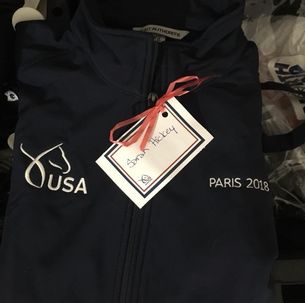 TBR: Was there anything unexpected that happened or a time where things didn't go as planned? SH: So the braiding would definitely be one of them. I had braided a little before but then I get this job where he has to be braided every day and I was worried he would look terrible going in to the World Cup Finals. By Sunday his braids looked great! One of the other things I wasn't expecting was to develop really good relationships with the other grooms. They have all become really good friends now. At any point in time I could reach out and ask questions. I grew closest to Jamie Barge's groom Sarah Griffen, we did everything together. Without those relationships I think it wouldn't have been as much fun. TBR: If anyone wanted to be a groom, FEI or just in general, what advice would give someone wanting that job? SH: Right off the bat I would say you need to be 110% devoted to the horses. Most horse people understand that it is long days, but I don't think you truly understand a long day until you've been at a horse show for ten straight weeks. Or being at these FEI competitions were the rounds don't start until 8pm at night. You are devoting endless hours of your day. You have to want to love it and want to be in the barn doting on these horses and just be there for them. I was the constant person for Eddie, and that made it worth it to me. The relationship that we built made those long hours worth it for me. Everything else will fall in to place, if you really into it and love it, being organized and detailed oriented, that will sort of fall into place. Devin Ryan owns River Run Stables in Long Valley, NJ.
We are so excited to bring you this new feature to The Barn Rat! This week we interview Michele Powell, a braider who works up and down the east coast following her clients to some of the most popular shows! 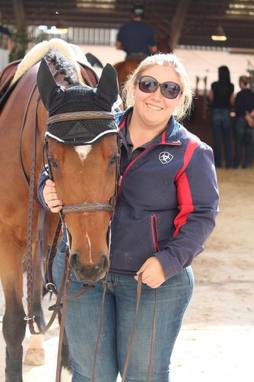 TBR: What is your job title? MP: Equine Braider TBR: Describe your position and your average work day. MP: I braid horses manes and tails for shows. I mostly just do hunter braids but on occasion I also do dressage braids and jumper plaits. As a braider you work all night long starting usually after the barns do their night check. Some people think the job is relatively easy work but what people don’t understand is that we are literally getting on and off a step ladder for sometimes over 12hrs with your arms up and braiding tiny insanely tight braids. It can definitely be hard on the body. The positive side is that we get to be around the horses when there is almost no one else around so they are usually very quiet and relaxed. For me it’s almost a calming, meditative job. TBR: What is the best part of your job? MP: I would say the best part of the job is being able to have day time hours to do with what you please. Also, a lot of jobs in the industry require you to kind of be at the beck and call of someone else almost around the clock. With braiding when the job is done you are done. I also really enjoy just being able to be around the horses without all the commotion of day time horse show life. TBR: What is the hardest/least desirable part of your job? MP: The hours. For sure. Working nights is hard and exhausting. Our sleep schedule is SOOO incredibly messed up! Sometimes we’re able to sleep a little bit at night and just go out suuuuper early (1 or 2am) if we only have a few horses to braid, and other times we only get to have a few hours in between one night’s work and the next because it’s so busy! You have to get used to sleeping during the day which for me is really difficult. I’m a total rise with the sun kind of girl, so I literally have to blackout my room as much as possible in order to be able to get any sort of good sleep. And then on the off nights you try to sleep at night... which TOTALLLLLLY throws everything out of wack. So yeah.. the hours are brutal but I think worth it. It’s just something you have to get used to. TBR: How many hours a week do you spend working? What is the work/life balance like?
MP: It really all depends on how many days the horse shows run, and how many horses your clients have showing. Could be anywhere from 10-50+hrs a week. As for work/life balance, I’ve worked as a groom, barn manager, and also an instructor and I have more of a life outside the barn now than I ever had with any of those jobs. My opinion is that it definitely gives you a bit more freedom than other jobs in the industry do. TBR: What advice would you give to someone wanting to do this job? MP: Learn a basic braid and a basic French braid. Find a professional to teach you all the little tips and tricks and practice until you literally can’t anymore. It’s a skill like any other. Once you learn it you can be good at it with enough practice. TBR: What experience or schooling did you need to qualify for this job? MP: It’s definitely helpful to have horse experience (although some braiders don’t when they start) because you’re dealing with these animals when no one else is around. You need to know basic barn safety. TBR: What is the range of pay for this position? MP: Depends on how hard you want to work and what you charge your customers. I’ve found the going rate is$95 mane and tail ($65/mane, $30/tail). But it varies. And it depends on how many horses you are braiding a night. TBR: What are 3 things you would want someone applying for this job to know? MP: Don’t get discouraged. Don’t steal other braiders accounts. Basically just be respectful. |
Categories
All
SponsorsInterested in sponsoring The Barn Rat? Be sure to contact us here!
|
